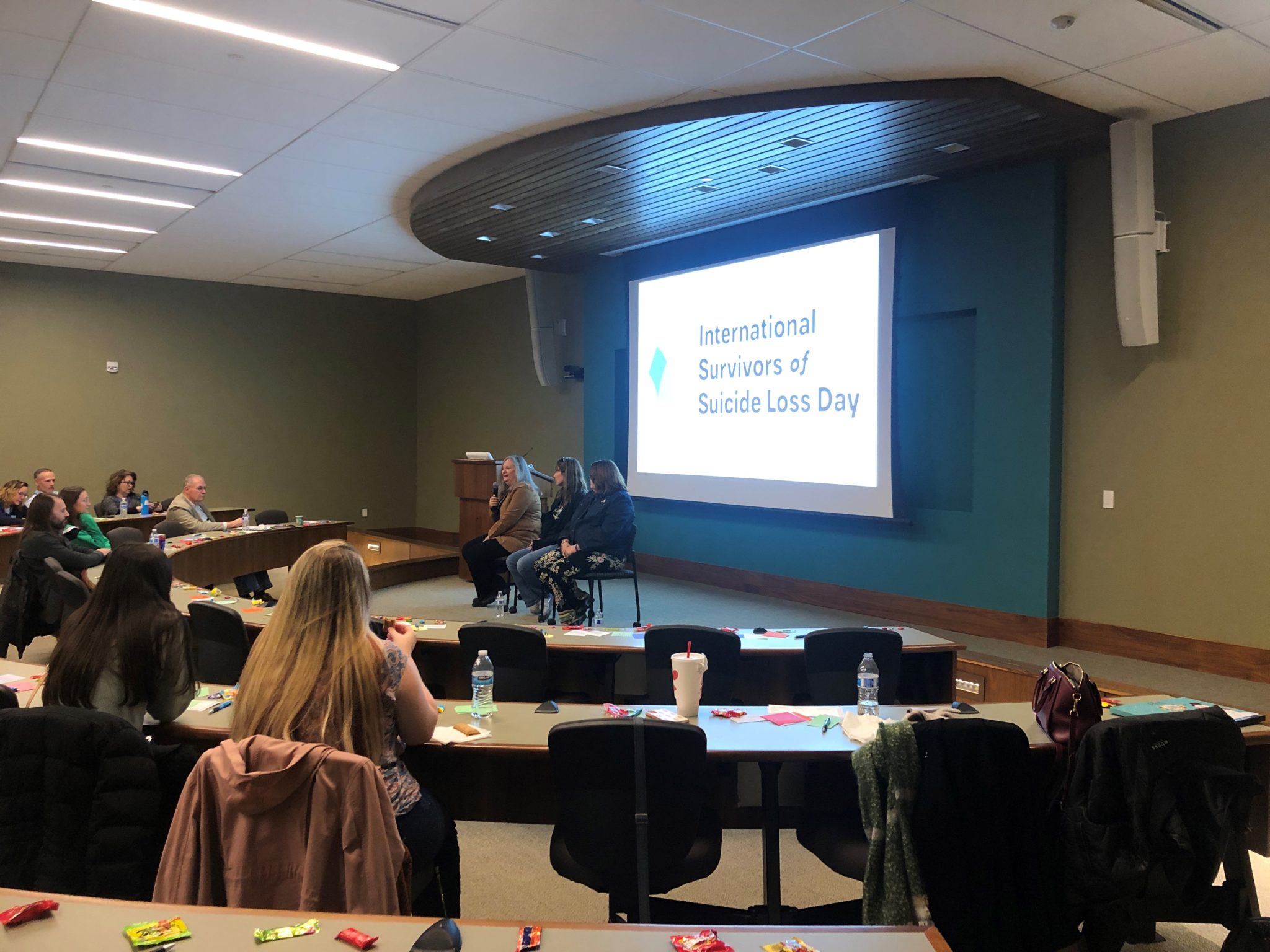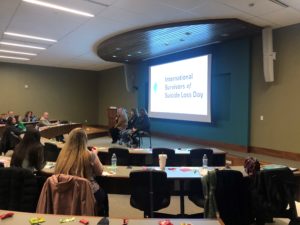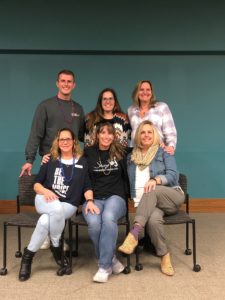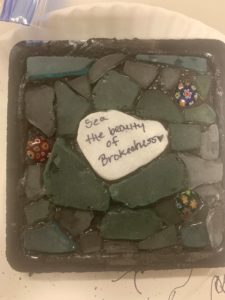ISOSLD Helps Those Who Have Lost a Loved One to Suicide
Writer / Christy Heitger-Ewing
Photography Provided
Grief is a difficult journey no matter how and when you face it. But grieving following a suicide loss is deemed ‘complicated grief’
because there’s so much guilt, shame and hurt wrapped up in the death. This is why the American Foundation for Suicide Prevention (AFSP) supports the annual International Survivors of Suicide Loss Day (ISOSLD). It’s a day where suicide loss
survivors gather at local events throughout the world to find connection, understanding and hope through their shared experience. AFSP hosted ISOSLD on November 19. The day involved a combination of panel discussions, breakout groups and support groups.
“For those who are impacted by the shame and guilt of suicide death, which is often so isolating, coming together and looking into the eyes of another who knows the depth of pain you’ve experienced is like none other,” Christine Turo-Shields says, co-owner of the Kenosis Counseling Center. “To know that they know allows for healing on such a deep level without saying a word. It’s an exchange of that ‘knowing’ that can begin to dismantle the isolation, shame and guilt.”
Turo-Shields spoke about EMDR (Eye Movement Desensitization and Reprocessing), a therapy that helps the brain process memories and reduce negative feelings about the memories. Alli Louthain, founder of Isha Warriors, an online yoga community for teens, talked about the healing benefits of yoga during the grief journey.
“The body benefits from movement and the mind from stillness,” Louthain says. “Yoga provides a physical space to process past trauma, let go of toxic thoughts and create wholeness—body, mind and soul.”
Brandon Puszkiewicz, Indiana Programs Manager for AFSP, says that when someone dies by suicide, there’s so much emphasis on the individual who died.
“What society tends to forget is that there are people left feeling a range of emotions, including guilt, anger, depression, confusion and sadness due to the sudden loss of their loved one,” Puszkiewicz says. “ISOSLD provides an opportunity for discussion, connection, and internal and external exploration to create a new perspective and way of thinking. For many, it’s the start of their healing journey.”
Such was the case for Teresa Youngen, who has attended ISOLSD three times since her son, Matthew, died in 2017.
“Last year we heard from a young man who assured the survivors that it wasn’t their fault. I so appreciated his words,” Youngen says, who likes the breakout sessions that are divided based on your particular loss (loss of a child, spouse, parent, sibling). “I like the share groups because you don’t have to edit, filter, or pretend anything. This year there was a couple who have been grieving for ten years. The husband had been holding back tears for some time, but the dam broke, and he wept openly.”
Turo-Shields notes that grief isn’t linear but rather elliptical in nature. It’s like a spiral where you touch the grief repeatedly. When you have these touchpoints, you may feel like you’ve made no progress in the grief journey, but this is part of the healing.
“You’re never back where you started. You’re always at a deeper level,” Turo-Shields says, who recommends the book “The Unique Grief of Suicide” by Tom Smith.
Puszkiewicz hopes that individuals walk away from ISOLSD with a sense of relief and not feeling the weight of guilt they’ve been carrying.
“People tend to feel so alone in this journey,” Puszkiewicz says. “But the community that’s been impacted by suicide can offer some help or encouragement for those that are just getting started on this healing journey.”
Amy Alt helped organize the ISOLSD this year.
“This day is important for survivors because it connects you with others who have experienced the same kind of loss,” Alt says, whose brother, Rex, died by suicide. “That may not seem important to someone on the outside looking in. However, to a person who lost someone to suicide, it’s vital to begin the healing.”
ISOLSD offers several valuable resources, including literature and support group information.
“After my first survivor day, I left with hope and the realization that I wasn’t alone in this,” Alt says. “I knew my grief wouldn’t go away, but now I had some tools and other people to help me walk through it.”
HRH’s suicide survivor support group meets the first and third Tuesdays of the month from 6-7:30 p.m. For more information, contact Sharon Samsell at 812-494-7783 or text 988 for mental health support.







